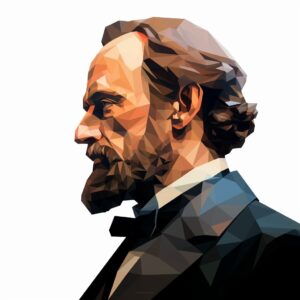Johann Friedrich Herbart Quotes
- Philosopher and psychologist
- Germany
- 1776
Johann Friedrich Herbart (1776-1841) was a German philosopher and psychologist who is considered to be one of the founders of modern educational theory. He is best known for his five-step pedagogical method, which emphasizes the importance of understanding the individual student and tailoring instru…Read More
Johann Friedrich Herbart (1776-1841) was a German philosopher and psychologist who is considered to be one of the founders of modern educational theory. He is best known for his five-step pedagogical method, which emphasizes the importance of understanding the individual student and tailoring instruction to their needs. He also developed a system of psychology known as Herbartianism, which focused on the idea that the mind is composed of a series of interconnected elements. Herbart’s most notable works include The Science of Education (1806), Outline of Psychology (1816), and The Art of Education (1837).Read Less
Johann Friedrich Herbart (1776-1841) was a German philosopher and psychologist who is considered to be one of the founders of modern educational theory. He is best known for his five-step pedagogical method, which emphasizes the importance of understanding the individual student and tailoring instruction to their needs. He also developed a system of psychology known as Herbartianism, which focused on the idea that the mind is composed of a series of interconnected elements. Herbart’s most notable works include The Science of Education (1806), Outline of Psychology (1816), and The Art of Education (1837).
Johann Friedrich Herbart Career Highlights
- Herbart began his career as a teacher in 1797, and later became a professor of philosophy at the University of Göttingen in 1805.
- In 1809, he published his first major work, “General Pedagogy”, which outlined his theories on education and the role of the teacher in shaping the minds of students.
- In 1810, Herbart was appointed as a professor of philosophy at the University of Königsberg, where he continued to develop his ideas on education and psychology.
- In 1826, he published his most famous work, “Psychology as a Science”, which laid out his theories on the mind and its processes.
- Herbart’s ideas gained widespread recognition and he was invited to give lectures at various universities, including the University of Berlin and the University of Vienna.
- He also founded the first psychological laboratory in Germany in 1826, which became a model for other universities to follow.
Key Contributions by Johann Friedrich Herbart
- Herbart’s most significant contribution was his development of the Herbartian psychology, which focused on the study of the mind and its processes, including perception, memory, and thinking.
- He believed that education should be based on scientific principles and that the role of the teacher was to guide and shape the minds of students through a process of instruction and moral education.
- Herbart also emphasized the importance of individualized instruction and the use of concrete examples and experiences to facilitate learning.
- He introduced the concept of “apperception”, which refers to the process of incorporating new knowledge into existing mental structures.
- Herbart’s theories had a major impact on the field of education, and his ideas were widely adopted in Europe and the United States.
What Sets Johann Friedrich Herbart Apart
- Herbart’s approach to education was unique in that it combined philosophical and psychological principles to create a comprehensive theory of education.
- He was one of the first educators to emphasize the importance of individualized instruction and the role of the teacher in shaping the minds of students.
- Herbart’s theories were also ahead of his time, as they laid the foundation for modern educational psychology and influenced the development of other psychological theories, such as behaviorism and constructivism.
Takeaways
- Herbart’s theories on education and psychology have had a lasting impact on the field of education and continue to be studied and applied today.
- His emphasis on individualized instruction and the role of the teacher in shaping the minds of students is still relevant in modern education.
- Herbart’s work highlights the importance of incorporating both philosophical and psychological principles in the study of education and the mind.








